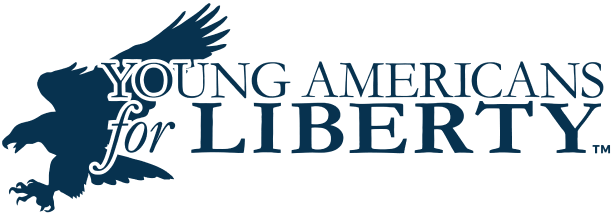November 30, 2022
VIA EMAIL to keith.hahn@wmich.edu AND CERTIFIED MAIL
Mr. Keith Hahn
General Counsel
Western Michigan University
2010 Seibert Administration Building, Mail Stop 5423
Kalamazoo, MI 49008-5200
RE: The First Amendment Rights of Western Michigan University’s Young Americans for Liberty
Dear Mr. Hahn,
I write on behalf of Young Americans for Liberty (hereafter, YAL) and its student members on the Western Michigan University (WMU) campus. These students brought to my attention an incident which, if true, constitutes an attempt to chill their First Amendment speech rights. We are writing you now in hopes that WMU will take action to prevent future incidents and avoid the need for legal action to defend our students.
The facts, as YAL understands them, are as follows. On October 27, 2022, WMU students associated with YAL set up a table to demonstrate the impact of higher taxes on the economy and ask students if they’d be interested in learning more about YAL. This table was in an outdoor high traffic section of campus between “The Valley” and the Pavilion. I am told this area of campus is frequently used without issue by other student groups engaged in similar activity. It is my understanding that this space on WMU’s campus would be considered a “Common Outdoor Space” under your policies.
During their demonstration, two WMU employees, later identified by the students as Mr. Smith M. “Smitty” Moore, the Director of Event Services, and Mr. Alex Gray, Assistant Director of Event Services/Business Operations, confronted the YAL students. According to our students, Mr. Moore was openly hostile, and claimed they were “going against tabling rules” and that other WMU students could not be “solicited.” Mr. Moore allegedly went on to ask the students if they wanted to be shut down and said to “next time go through the university”, “go through it or we’ll shut you down.” Mr. Gray, while cordial and professional with the students, asked if they had acquired a permit and stated that there was an outdoor space form required for tabling on campus. Despite this intimidating interaction, the students ultimately continued tabling for approximately one hour after this incident.
As a public university, WMU is required to abide by the guidelines of the First Amendment if and when it regulates student conduct– students’ First Amendment rights do not disappear on the grounds of WMU. See Tinker v. Des Moines Indep. Cmty. Sch. Dist., 393 U.S. 503, 506 (1969). At least for its students, a college campus possesses many characteristics of a public forum. See Widmar v. Vincent, 454 U.S. 263, 268, n.5 (1981). This includes sidewalks and other open high traffic areas at public universities. See, e.g., McGlone v. Bell, 681 F.3d 718, 732 (6th Cir. 2012)(holding that sidewalks around Tennessee Technological University’s campus were considered traditional public forum). The requirement that one must register before undertaking public speech to enlist support for a lawful movement is quite incompatible with the requirements of the First Amendment. See Watchtower Bible & Tract Soc’y of N.Y., Inc. v. Vill. of Stratton., 536 U.S. 150, 164 (2002).
YAL has carefully reviewed all publicly available WMU polices, and we can find no university policy that supports the position that Mr. Moore and Mr. Gray attempted to apply to our students. Section 8.1 of the University’s public events policy is quite clear that any outdoor registration is voluntary (emphasis added).1 Similarly, Section 4.3.2 makes quite clear that registration to use common space is encouraged, but not required (emphasis added). 2 Based on our research, the students believe Mr. Moore may have inappropriately attempted to apply an indoor solicitation policy for the Bernhard Center to outdoor free speech activity.
While WMU’s outdoor space policies may be facially constitutional, Mr. Moore and Mr. Gray’s misinterpretation and misapplication are not. YAL finds it deeply concerning that, to our students’ knowledge, no one has ever attempted to apply a solicitation policy to other students tabling in the Common Outdoor Space. This certainly raises the question from our perspective as to whether our students were targeted on the basis of their political views. Even if the table had been set up in an indoor limited public forum like the Bernhard Center, Mr. Moore’s comments could still be inappropriate since YAL’s students were engaged in protected political speech, not commercial solicitation.
By misapplying or unequally applying school policies, Mr. Moore and Mr. Gray are creating liability for WMU which could be pursued as a federal civil rights violation under 42 U.S.C. § 1983. Furthermore, WMU could be liable for attorney’s fees in the event of a judgment against the school under 42 U.S.C. § 1988. At a minimum, I encourage you to educate WMU employees on the differences between commercial and political speech and how to treat such activity taking place in public and limited public forums. It is troubling that individuals who are directing WMU’s event services do not appear to understand these important concepts.
Currently the students of WMU YAL are not pursuing legal action but are willing to do so in the event of future attempts to chill constitutionally protected activities. As of the date of this letter, no other WMU employee has attempted to stifle YAL’s students. However, incidents like those of October 27 cannot happen again. It is my sincere hope that you will take swift and necessary intervention to ensure that the employees of WMU understand their obligations and prevent any future attempts to stifle constitutionally protected rights. Please confirm to me, in writing, that WMU is committed to protecting the free speech of students on your campus once the appropriate actions have been taken.
Sincerely,
Steven M. Mairella, Esq.
General Counsel
Young Americans for Liberty
1 https://wmich.edu/policies/public-events
2 Id.
